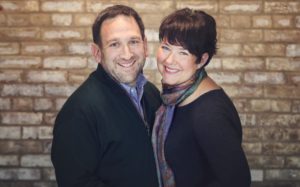Having cancer is stressful. Not just the physical aspect, but the emotional and social aspects, too.
Every party or outing we go to we think about who else will be there. Do they know our situation? How much or how little? Do we share the diagnosis or not? Do we have the energy for the “talk?” Mostly though we try to prepare for the inevitable question: “How are you?”
Given how often this comes up and our professional backgrounds we have talked about developing our own cancer “elevator speech” (we have heard from others in our situation that they have done that) but haven’t done it yet because it’s actually pretty challenging. How do we best communicate how hard living with metastatic breast cancer is but also that we are doing as well as we can? We have shitty days. We cry. We question. We stay in bed with the covers over our heads. But, we also laugh, enjoy each other and our friends and family, take on new adventures and think about what new restaurants we want to try next.
We’re finding how these conversations go just depends. It depends on how well we know the person and what we know they know about where we are in life. Cassie’s desire to tell every single person (like the person who owns the boutique she likes, the yoga instructor, and the manager at a restaurant we love) has subsided as the disease has become a more regular part of our lives instead of this piece of shocking news. But there is the question of authenticity. How can we best genuinely share where and how we are without taking every conversation down a long dark path?
For us, we think about “how we are doing” on both a large or more macro scale and on a smaller or day-to-day scale. On the macro scale we are heartbroken, terrified, overwhelmed and incredibly sad almost all of the time. On the smaller, more day-to-day scale, we are often okay – which might mean we’ve slept well, gotten a workout in, are experiencing limited physical side effects and are looking forward to tomorrow. Another day we might be really struggling – haven’t slept well, experiencing side effects from the medication, and are feeling very emotional and like our lives are stuck or too small. We can have good days and bad days within the larger ugly context of metastatic breast cancer. We can be both okay and not okay at the same time depending on the scale or lens we are using to answer the question.
Another part of this is that we are learning about the importance of regularly checking in with each other on the related question of “how we are doing.” As a couple. Are we connected? Are we focusing enough on our buckets? Are we helping each other slow down? Are we in sync? This requires a degree of intentionality that we both find enormously challenging but that we are coming to realize more and more is absolutely essential. We can both be doing all right as individuals but not as well as a couple so we have to ask and answer the question both ways.
After losing her husband, Sheryl Sandberg talked about how jarring she found it when people asked how she was doing. She suggests re-framing the question from “How are you?” to “How are you today?” While we can’t, and really don’t want to, have a say over what people ask us, we can take control over how we answer the question. Today, we are okay.

All of this is truly helpful. You’re in our daily thoughts and I often wonder the best way to remind you that we are with you. We are ready to listen about the big stuff OR the Cubs or your most recent meal, and also fine with not taking up your time right now. As far as I’m concerned, the only thing I need in conversation is to know that it’s filling rather than draining your bucket. I’d rather have it end abruptly than suck energy. But starting questions are helpful. What’s a good one that can take the conversation either way you choose? If I lead with Cubs or politics, can we get from there to big topics easily enough? Is big to small an easier pivot? (These questions are wonderings, not assignments. The writing you’re already doing is a real gift.)